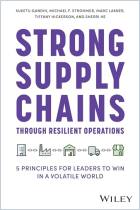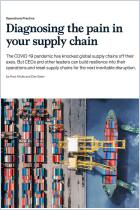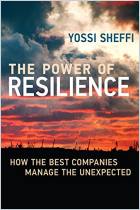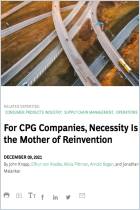The public was concerned about toilet paper scarcity, but medtech and biopharma companies had other shortages in mind. Would there be enough masks and gloves and other medical supplies to go around? What if manufacturers shut down or suppliers became inaccessible? The COVID-19 pandemic exposed fragility in the global supply chain, but medical supply vulnerabilities were among the scariest revelations of the pandemic. Biopharma and medtech companies can assess their supply chain resiliency using this report from the Boston Consulting Group.
The pandemic revealed vulnerabilities in the supply chains for medical technology and biopharmaceuticals; requiring immediate action to improve resiliency.
A complex and fragile supply chain moves essential medical supplies around the globe. Systems were developed to maneuver around pricing pressures, tax policies and maturing CMOs (contract manufacturing organizations), optimizing for quality, cost and capital expenditure. Perhaps resiliency wasn’t top of mind when creating the system; the pandemic has changed that.
Some governments adopted protectionist policies to keep enough medical products on hand for future emergencies. The United States encouraged local production through subsidies and loan programs, and the European Commission considered policies to make supply chains more resilient. Medtech and biopharma companies must be aware of these changes and respond appropriately. Standard supply chain management ...
Megan DeFauw, Shana Topp, Bryan Head, Ben Aylor and Aaron Snyder are professionals with the Boston Consulting Group.













Comment on this summary